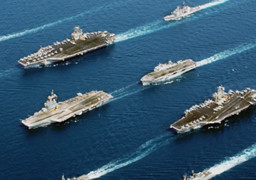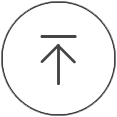




 |
 |
 |
|||
 |
 |
 |
 |
 | |
 |
 |
 | |


| 글로벌 트렌드 | 내서재담기 |


  |
 |  |
냉전이 끝난 이후, 미국의 외교 정책은 중동과 중앙아시아에 집중되어 왔고, 그 밖의 다른 관심 사안에 대해서는 등한시해왔다. 그러나 중국의 부상과 러시아의 점점 더 커지고 있는 목소리로 인해 소위 인도 태평양 지역에서의 작전 임무 수행에 대한 미국의 능력은 재점검이 요구되고 있다. 이 지역에서 현재 가장 저평가되고 있는 미국의 동맹은 바로 대만이다. 중국, 미국, 미국의 동맹국들에 대한 대만의 현재 전략적 위치는 무엇일까? 대만과 미국의 더 긴밀한 친교로 인해 발생하는 위협과 기회는 무엇일까?
중국 정부의 움직임과 각종 성명을 분석하면, 목표는 글로벌 경제, 군사, 정치 영역에서 미국의 영향력을 ? 최소한 지역적인 차원에서라도 ? 중국으로 대체하고자 하는 것이다. 이는 소위 중국의 패권 정책이라 할 수 있다. 현대적인 국가의 개념은 1648년 웨스트팔리아 조약에 의해 확립되었다. 중국의 입장에서 이는 독단적인 서구의 인위적이고 잠정적인 개념으로 파악될 수 있다. 결과적으로, 패권을 추구하는 중국의 입장에서 지난 300년 동안 유지되어온 이러한 ‘세계 질서’를 힘을 키운 지금에 와서는 속으로 인정하지 않을 수 있다.
1970년대 후반 중국이 세계 경제에 편입되었을 때, 중국은 가난한 국가였고, 전체적인 교육 수준은 낮았으며, 군사적으로도 주목받지 못했다. 중국의 입장에서는 선택의 여지없이 서구가 정한 규칙을 준수할 수밖에 없었을 것이다. 그러나 경제 성장과 더불어 군사적으로도 강력해지면서 과거 강성했던 시절의 군주제 혹은 마오주의를 특징짓는 패권에 대한 관심이 점점 더 높아지고 있다.
시진핑의 등장 이후, 중국은 압도적인 규모의 경제를 활용하여 WTO 무역 규칙을 위반하거나 변칙적으로 적용하고, 군사적으로는 남중국해를 적극적으로 도모하고 이 지역에서 도발을 시도하고 있다. 그러나 전문가들은 이러한 시도도 국제 규칙에 따라 행동하지 않으려는 몇 가지 증상에 불과하다는 의견이다.
1978년 12월 15일 지미 카터(Jimmy Carter)가 중화인민공화국과 미국 사이에 공식 관계가 수립되었다고 발표했을 때 베이징은 미국이 대만과의 관계를 종료하고 이 나라와 안보 조약을 철회할 것을 요구했다.
그러나 중국이 대만과 평화적으로 문제를 해결하겠다는 약속에 확답을 주지 않았기 때문에, 미 의회는 대만 관계법(The Taiwan Relations Act)을 통과시켰다. 1979년 4월 10일에 제정된 이 법은 미국이 1978년 12월 미중 공동성명을 통해 1979년 1월 1일 이후 중화인민공화국 정부를 정식으로 승인하고 외교관계를 수립하지만, 대만과 문화 및 통상 등에 관한 비공식 관계를 유지하는 데 있었다. 이 법안으로 인해 대만의 자위에 필요한 무기와 군사기술을 제공하고, 미국에 존재하는 대만 자산에 관한 소유권 및 당사자 적격(適格) 승인 등이 규정되었다. 중국에게 이는 두 개의 중국을 사실상 미국이 인정한 것이었다.
이 법안에는 다음과 같은 기술이 있다.
“평화로운 수단이 아닌 다른 방법으로 대만의 미래를 결정하려는 어떤 시도든 … 미국의 중대한 관심사가 될 것이다.”
이 정책을 지원하기 위해 미국은 “대만에게 방어적 무기를 제공하고”, “그 능력을 유지시키고”, “대만 국민의 안보나 사회 경제적 시스템을 위태롭게 하는 강제 또는 다른 형태의 강요에 저항하는” 것으로 대만을 지원했다.
대만 관계법은 또한 대만과 미국 국민들이 긴밀한 파트너십을 유지할 수 있도록 만들어졌다. 다만 시간이 지남에 따라 미국 행정부는 계속해서 이러한 접촉을 점점 더 줄여나갔다.
그러나 대만 관계법이 제정된 지 40년이 지난 오늘날, 완전히 다른 환경이 아시아에 등장하고 있다. 냉전이 끝나면서, 오래 전부터 중국을 소비에트 연방에 대항하기 위한 하나의 카드로 활용하던 상황은 이미 훨씬 이전에 사라졌고, 중국의 글로벌 경제 편입이 중국을 정치 개혁으로 이끌어 중국이 국제 시스템의 ‘책임있는 이해 당사자’로 변모할 것이라는 희망에도 변동이 발생했다.
오히려 경제가 성장함에 따라, 중국은 크게 늘어난 자원을 활용하여 약 25년 동안 군사력 증강에 집중하고, 이를 통해 이 지역에서 힘의 균형을 흔들고 중국의 패권을 추구하는 방향으로 나가고 있다. 남중국과 동중국해는 글로벌 뉴스에 항시 등장하는 핫 이슈가 되고 있다.
특히 대만의 문제는 좀 더 구체적이고 노골적이다. 2016년 1월, 대만의 민주진보당(DPP, the Democratic Progressive Party)의 차이잉원(Tsai Ing-wen)이 대만 총통으로 당선된 이후, 중국은 대만에게 지속적으로 압력을 행사하고 있다. 경쟁자 국민당(KMT)과 달리, 민주진보당은 중국과의 통일에 반대의 입장을 취하고 있으며, 대만의 두 해협이 중국의 일부라는 것도 인정하지 않는다. 베이징은 이를 받아들이지 않으며 이로 인해 양측의 갈등은 해소되지 않고 있다. 더욱이 최근 홍콩에서 범죄인 인도법 반대 시위가 거세게 일면서 대만에서도 양안 관계(중국 본토와 대만의 관계) 및 통일에 관한 거부감이 커지고 있다. 중국은 이러한 현실을 받아들이지 않고 있으며, 이로 인해 대만을 약화시키는 세 가지 전략을 취하고 있다.
첫 번째 전략은 대만을 내부적으로 약화시키는 것이다.
- 중국인들의 대만 여행에 수적 제한을 두는 것
- “중국의 대만 지역”에서 생산되었다는 라벨을 부착하지 않은 대만산 식품 수출 규제
- 대만 두뇌 유출 획책, 즉 대만 학생들과 교수들이 중국 본토에서 공부하고 일하고 생활하고 투자할 수 있는 31가지 조치나 인센티브를 도입
두 번째 전략은 대만을 고립시키는 것이다.
- 메리어트, 유나이티드 항공 등과 같은 외국 기업들이나 기타 기업들의 홈페이지에 중국의 입장을 반영하여, 대만이 중국의 일부임을 밝히도록 요구
- 베이징의 대만 사무국과 대만의 본토 사무국 간의 양안 간 통신 중단
- 대만 대표들이 국제민간항공기구(Civil Aviation Organization), 인터폴(INTERPOL), 세계보건기구와 같은 국제기관의 연례 국제회의에 참석하지 못하도록 조치
- 잠비아, 파나마, 도미니카 공화국과 같은 국가들이 중국과 관계를 맺기 전에 대만과의 관계를 끊도록 강요
세 번째 전략은 대만의 안보 문제를 흔드는 것이다.
- 대만과의 협정을 파기하고, 대만 해협에 대한 새로운 상업 비행 경로를 일방적으로 발표
- 대만 해협에 대한 중국 항공모함의 잦은 진출
- 대만 정부 기관에 최소 300건의 사이버 공격
- 중국 군용 항공기의 대만 선회 비행에 따른 긴장 고조
지난 40년 동안 대만은 미국이 중국을 세계 질서로 편입시키는 ‘정상화’ 과정에서 고통을 겪었다. 지미 카터에서 오바마 대통령에 이르기까지 미국은 세계 경제 시스템에 통합되어 중국이 부유해지면 전후 일본과 대만과 마찬가지로 민주주의가 태동하고, 사회가 안정되어 세계적인 평화와 안정에 중국이 큰 기여를 할 것으로 가정했다. 미국은 이러한 국면에서 결국 대만이 중국과 평화롭고 조화롭게 합쳐질 수 있다고 판단한 것 같다. 그러나 지난 10년 동안 중국은 국제적 규범에 대해 공격적인 양상을 보였고, 세계가 오히려 중국을 억압하고 적대적으로 대한다는 태도를 보여왔다.
이러한 맥락에서, 대만의 독립과 안보는 이제 워싱턴에게 매우 중요한 지형이 되었다. 러시아의 크림 반도 편입, 우크라이나와 조지아 침공, 남중국해에서의 중국의 불안정한 행동, 홍콩의 자율성 약화 등의 현상과 직면하면서, 대만은 중국을 견제하려는 미국에게 주요 시험 대상이 된 셈이다.
그 외에도 대만은 이 지역의 민주주의 국가이자 미국의 주요 무역 파트너로서도 중요한 위치에 있다. 더 중요한 것은 대만이 아시아에서 미국과 맺은 두 조약국 일본과 필리핀 사이에 위치해 있어 이 지역 힘의 균형에서 그 역할이 매우 상당하는 데 있다. 미국이 군사적 입장에서만 보더라도, 괌은 드넓은 태평양과 미국 기지에 대한 해상 출입구로, 위기 상황에서 대만은 제2차 세계대전의 영국과 마찬가지로 침몰하지 않는 항공모함이 될 수도 있다. 따라서 미국의 입장에서 대만과의 공고한 동맹은 중국의 패권주의를 효과적으로 막을 수 있는 토대가 된다.
미국과 중국의 무역 분쟁, 아시아의 군사적 균형에 있어 대만의 중요성이 부각되고 있다. 이에 우리는 향후 다음과 같은 예측을 내려 본다.
첫째, 미국은 2021년까지 미국-대만 자유 무역 협정을 비준할 것이다.
이것은 대만이 중국 본토로부터 경제적 분리를 추진할 수 있는 토대가 된다. 현재 대만의 입장에서 중국에 대한 경제 의존은 안보 문제와 직결되고 있다. 이 협정을 통해 중국이 경제를 무기로 대만 국내 정치를 흔드는 일을 방지할 수 있으며, 또 한편으로 미국과 동맹국들의 대만과의 무역 및 투자 관계를 심화시켜 대만이 원하는 만큼 지속적으로 독립을 유지할 수 있는 열쇠가 될 것이다.
둘째, 트럼프 대통령은 양국의 국가안보기관, 정부부서, 군사 기관을 포함해 모든 분야에서 미국-대만과의 관계를 논의하고 만날 수 있도록 행정명령을 강화하고 필요하다면 기존 행정명령에 변경 조치도 취할 것이다.
대만 관계법에 따르면 미 의회는 ‘미국과 대만 국민간의 상업, 문화, 기타 관계의 지속’을 유지하려는 의도를 갖고 있다. 그러나 비즈니스와 문화적 접촉은 계속 유지되어 왔지만, 정부간 공식적인 교류는 미국 양당의 관리 하에 행정부의 주의 조치로 인해 제한적이었다. 미 공화당과 민주당 지도자들은 대만 총통을 비롯해 대만의 관료들과 교류를 해온 반면, 행정부의 교류와 방문은 상당히 제한되어 있었던 것이 사실이다. 다만 이러한 교류의 문제는 법률의 문제가 아니라 언제든지 수정할 수 있는 국무부 지침에 의해 설정된 것에 불과하다. 중국과 미국의 대치, 경쟁 혹은 협력에 따라 이 부문에는 큰 변화가 예고되고 있다.
셋째, 미국은 대만관계법에 의거하여 “평화로운 수단이 아닌 다른 방법으로 대만의 미래를 결정하려는 어떤 시도든 … 미국의 중대한 관심사가 될 것이다”를 위한 시행 조치를 마련하고 취할 것이다.
대만 해협에 대한 위협 및 초계 비행, 해군 및 미사일 배치 등 대만에 대한 중국의 군사적 위협에 대해, 미 국방부는 대만이 작전 능력을 높일 수 있도록 두 국가와 그 이상의 국가들이 참여하는 연합 훈련 등을 추진할 수도 있다.
넷째, 미국은 대만에 대한 군사 지원을 크게 늘려 대만 해협에서의 중국의 군사력 증강 및 도발적인 행동에 대응할 것이다.
미국-중국과의 관계로 인해, 꽤 오랫동안 대만의 공군은 구식 무기로 유지되어 왔기 때문에 단기적으로 빠르게, 그리고 믿을 만한 수준으로 업그레이드가 필요하다. 이에 대한 미국-대만 간의 논의는 현재도 계속 진행 중이다. 우선 트럼프 행정부는 80억 달러(약 9조6160억원) 규모의 최신형 전투기 F-16V 66대를 대만에 판매하겠다는 계획을 공식 승인했다. 또한 중국에게 강력한 메시지를 보내는 데 더욱 효과적인 방법으로 매년 10~15대의 F-35B를 판매하고 일본과 유럽에 배치된 최첨단 이지스 어쇼어(Aegis Ashore) 미사일 시스템에 대해서도 논의가 진행 중이다.
다섯째, 미국은 파트너와 동맹국들에게 대만과의 관계 및 협력 증진이 미국 외교 정책의 우선순위임을 분명히 알릴 것이다.
중국은 현재 국제 지원 네트워크를 폐쇄함으로써 대만에 큰 압력을 가하고 있다. 예를 들어, 중국은 대만의 남미 외교 동맹국에 대해 압력을 가하고, 중국의 영향력이 커진 국제기구들에 대한 대만의 진출을 방해하고 있다. 그러나 미국의 파트너와 동맹국에게 대만과의 관계 및 협력을 증진시키고자 하는 미국의 노력 여하에 따라 이러한 중국의 압력은 무위로 끝날 수도 있다. 실제로 트럼프 대통령은 행정 정책에 따라 워싱턴이 연간 해외 원조 예산을 평가할 때 대만과의 관계 및 협력 증진국에 우선 순위를 두는 것을 고려하고 있다.
* *
References List :
1. THE AMERICAN INTEREST. April 8, 2019. GARY J. SCHMITT & JAMIE FLY. Taiwan Relations Act at 40: It’s Time to Deepen Ties.
http://www.aei.org/publication/the-taiwan-relations-act-at-40-its-time-to-deepen-ties/
2. The Washington Post. May 18, 2016. Gary J. Schmitt. It’s time to ditch the ‘one China’ fiction and normalize relations with Taiwan.
https://www.washingtonpost.com/opinions/its-time-to-ditch-the-one-china-fiction-and-normalize-relations-with-taiwan/2016/05/18/e0f9d3a6-1b7a-11e6-8c7b-6931e66333e7_story.html?utm_term=.d3fa3a0bd615
3. AEIdeas. March 27, 2019 Michael Mazza. Senators introduce Taiwan Assurance Act in move to review US-Taiwan relations.
http://www.aei.org/publication/senators-introduce-taiwan-assurance-act-in-move-to-review-us-taiwan-relations/
4. AEIdeas. January 24, 2018. Michael Mazza. Senators introduce Taiwan Assurance Act in move to review US-Taiwan relations.
http://www.aei.org/publication/taiwans-demographic-crunch-and-its-military-implications/
5. AEIdeas. May 9, 2019. Michael Mazza. Alignments in US and Taiwan foreign policy pressures from maximum pressure, universal values, to Venezuela.
http://www.aei.org/publication/alignments-in-us-and-taiwan-foreign-policy-pressures-from-maximum-pressure-universal-values-to-venezuela/
6. AEIdeas. April 10, 2019. Michael Mazza. What is the US role in countering Chinese Communist Party influence operations in Taiwan?
http://www.aei.org/publication/what-is-the-us-role-in-countering-chinese-communist-party-influence-operations-in-taiwan/
7. AEIdeas. March 13, 2019. Michael Mazza. Assessing the utility of new fighter aircraft for Taiwan’s defense needs.
http://www.aei.org/publication/assessing-the-utility-of-new-fighter-aircraft-for-taiwans-defense-needs/
8. The National Interest. January 19, 2018. Michael Mazza & Gary Schmitt. The F-35: How Taiwan could really push back against China.
https://nationalinterest.org/blog/the-buzz/the-f-35-how-taiwan-could-really-push-back-against-china-24127
9. AEIdeas. August 22, 2018. Gary J. Schmitt. US to Taiwan: ‘The problem is us.’
http://www.aei.org/publication/us-to-taiwan-the-problem-is-us/
10. AEIdeas. May 9, 2018. Michael Mazza. How Beijing pressures Taiwan.
http://www.aei.org/publication/how-beijing-pressures-taiwan/
 |  |
Taiwan’s Crucial Role in America’s Pivot to the Pacific
Actions and statements by the Chinese government make it abundantly clear that its objective is to supplant the United States as the world’s dominant economic, military, and political power. As explained in the May 2019 issue of Trends, China’s doctrine of “tianxia” envisions a world with no sovereign nations other than China. The western concept of nation states codified in the 1648 Treaty of Westphalia, is seen as artificial and temporary by the Chinese leadership. And consequently, a hegemonic China will never be content to exist within the “world order” recognized for the past 300 years.
When china was admitted to the world economy in the late 70s, it was poor, uneducated, and militarily weak; it played by our rules because it had no choice. But as it’s grown stronger, it has increasingly reasserted the values that characterized imperial and Maoist China. Since the rise of Xi Jinping, it has increasingly violated WTO trade rules, aggressively militarized the South China Sea, and provocatively suppressed human rights. And these are just a few of the symptoms of its unwillingness to play by accepted international rules.
When Jimmy Carter announced on December 15, 1978 that formal relations between the People’s Republic of China and the United States had been established, Beijing demanded that the United States end relations with Taiwan and withdraw from its security treaty with the island state.
However, in light of Beijing’s unwillingness to pledge to settle issues peacefully with Taiwan, Congress passed The Taiwan Relations Act which stated that “any effort to determine the future of Taiwan by other than peaceful means . . . would be of grave concern to the United States.” And, to support that policy, the United States was “to provide Taiwan with arms of a defensive character” and “maintain the capacity . . . to resist any resort to force or other forms of coercion that would jeopardize the security, or the social or economic system, of the people of Taiwan.”
The Taiwan Relations Act was also intended to allow the people of Taiwan and the United States to remain in close partnership. Over time, however, successive U.S. Administrations have increasingly narrowed those contacts.
Now, 40 years after The Taiwan Relations Act was signed, a completely different geostrategic environment faces the United States in Asia. The Cold War is long over and so too the justification for using China as a card to be played against the Soviet Union. Also over is the hope that somehow economic engagement with China would gradually, but inevitably, lead China down the road to political reform and to becoming a “responsible stakeholder” in the international system. To the contrary, as its economy has grown, China has used its increased resources to engage in a quarter-of-a-century long military build-up that has led to a worrisome change in the region’s balance of power and an assertion of Chinese power in the South and East China Seas.
Specifically, since Tsai Ing-wen of the Democratic Progressive Party (or DPP) was elected president of Taiwan in January 2016, China has launched a sustained pressure campaign against the island. Unlike its rival, the KMT party, the DPP is not even “nominally” committed to reunification with China and does not accept that both sides of the Taiwan Strait are part of “one China.” Beijing finds this unacceptable and has embraced a three-part strategy to undermine Taiwan.
The first part involves weakening Taiwan internally by:
- Limiting the number of Chinese tourists who can travel to Taiwan;
- Destroying food imports from Taiwan not labeled as made in the “Taiwan Area of China;” and,
- Introducing the so-called “31 measures” or incentives for Taiwanese students and professionals to study, work, live and invest in China, thereby, increasing the “brain drain” from the island.
The second part involves isolating Taiwan by:
- Demanding that foreign companies like Marriott, United Airlines, and others amend web pages to reflect Beijing’s position that Taiwan is part of China;
- Suspending cross-strait communications between Beijing’s Taiwan Affairs Office and Taiwan’s Mainland Affairs Council;
- Barring Taiwan’s representatives from attending annual international meetings of regulatory bodies such as the Civil Aviation Organization, INTERPOL, and the World Health Organization; and,
- Forcing countries such as Gambia, Panama, and the Dominican Republic to sever relations with Taiwan before establishing relations with China.
The third part involves unsettling Taiwan’s security by:
- Unilaterally announcing new commercial flight paths over the Taiwan Strait in violation of previous agreements with Taiwan;
- Frequently sailing China’s aircraft carrier through the Strait;
- Launching at least 300 cyber-attacks on Taiwanese government agencies; and,
- Regularly circling the island with military aircraft forcing Taiwan to scramble its aging fleet of fighter jets.
For the past forty years, Taiwan suffered as the United States tried to “normalize” China into the world order, which China had stubbornly resisted under Imperial rule as well as Maoist doctrine. Presidents from Carter to Obama assumed that an affluent China integrated into the world economic system would contribute to the advance of democracy, stability and global well-being, much as post-war Japan and Taiwan have done. Under U.S. policy, it was believed that that this would eventually enable the peaceful and harmonious absorption of Taiwan into a democratic China. However, the past decade has seen China becoming more aggressive, repressive, and hostile to international norms of conduct.
In this context, Taiwan’s independence and security is now particularly important to Washington. With Russia’s annexation of Crimea and its invasion of the Ukraine and Georgia, coupled with China’s destabilizing actions in the South China Sea and undermining of Hong Kong’s autonomy, Taiwan has become a key test of U.S. resolve in supporting partners in the face of “great power” pressure.
Beyond that, Taiwan is important in its own right as a thriving democracy and major U.S. trading partner. And perhaps more significantly, the island is critical in the region’s balance of power, sitting between two U.S. treaty allies: Japan and the Philippines. Furthermore, the “sea gateways” to the broader Pacific and America’s base in Guam lie to the north and south of the island. In a crisis, Taiwan could become an unsinkable Aircraft Carrier, much like Britain in World War II, as well a key partner in containing the Chinese military within the “first island chain.” Therefore, solidifying this alliance could effectively, prevent China from exerting significant reach into the Western Pacific and enable U.S. allies to control China’s flow of indispensable imports and exports.
Given this trend, we offer the following forecasts for your consideration.
First, the United States will ratify a U.S.-Taiwan free trade agreement by 2021.
This is part of a broader U.S. strategy to encourage partners to pursue economic decoupling from mainland China in sensitive sectors. Today, Taiwanese economic dependence on the mainland is a significant national security challenge for them. Deepening trade and investment ties to the United States and other partners will be key to Taiwan’s continued independent existence by making it more difficult for Beijing to utilize economic coercion to interfere in domestic Taiwanese politics. Since the U.S. trade war with China is becoming one of the few areas of bipartisan agreement, expect Congress to encourage the Trump Administration to accept the Tsai government’s offer to resolve longstanding irritants in the U.S.-Taiwan trade relationship and begin negotiations on a free trade agreement as quickly as possible.
Second, the President will issue an executive order updating guidelines to ensure that U.S. and Taiwanese officials of all ranks, including the respective national security agencies and militaries, can meet to discuss issues of mutual interest.
The Taiwan Relations Act states that Congress intended to authorize “the continuation of commercial, cultural, and other relations between the people of the United States and the people on Taiwan.” Yet while business and cultural ties have continued to flourish, official interactions have become limited because of the caution of Administrations under both American political parties. And while Republican and Democratic leaders in Congress have met with Taiwanese officials, including the island’s Presidents, on U.S. soil and in Taipei, Executive Branch visits are overwhelmingly limited to working-level officials. The rules governing these contacts are not a matter of law but are set by State Department guidelines that can be modified at any time. In another easy, but important step, Congress should make the Director of the American Institute in Taiwan, who is our de facto ambassador in Taipei, a Senate-confirmed political position.
Third, the United States will take steps to enforce the Taiwan Relations Act’s declaration that “any effort to determine the future of Taiwan by other than peaceful means” would be “of grave concern to the United States.”
Given China’s military buildup across from Taiwan and its now routine air, naval, and missile deployments designed to bully Taiwan, the Pentagon will invite the Taiwanese military to participate in exercises to increase the former’s proficiency in combined operations and to ensure that the two forces are able to operate effectively together should the need arise.
Fourth, the U.S. will respond to China’s military buildup and its provocative maneuvers in the Taiwan Strait by dramatically increasing its military assistance to Taiwan.
Because of American accommodation of China, Taiwan’s Air Force has become antiquated and it needs to be credibly upgraded, near-term. Discussions are already underway. The latest F-16V aircraft with state-of-the-art armament & electronics can be delivered quickly. At the average price paid for these jets by other allies, selling Taiwan 200 of them would offset this year’s U.S. Trade deficit with the country. Even more effective for sending a message to China, will be selling Taiwan 10-to-15 F-35Bs each year, accompanied by sales of the state-of-the-art Aegis Ashore missile system that is being deployed in Japan and Europe. This would reassure our allies in Japan, the Philippines, and South Korea, as well as sending a clear message to the Chinese. Best of all, this will generate big revenues for U.S. Defense contractors, while undercutting a hostile power. And,
Fifth, the United States will make clear to its partners and allies that promoting ties and cooperation with Taiwan is a priority for U.S. foreign policy.
In keeping with Trump administration policy, this priority will be considered when Washington assesses annual foreign aid budgets. As mentioned earlier, Beijing has put Taipei under increasing pressure by closing off its international support network. For instance, it has attempted to poach Taiwan’s remaining diplomatic allies and has used its growing clout in many international organizations to block the Taiwanese from being represented in international organizations on issues such as health, law enforcement, and civil aviation. Since 1949, Americans across all economic strata have engaged in friendship and exchanges with Taiwan. Congress intended the Taiwan Relations Act to preserve these ties and honor the sacrifices previous generations of Americans made to Taiwan’s success. At a time when many wonder whether the world will be remade in China’s image, it’s important for us to support “the other China,” which is economically vibrant, raucously democratic, pro-American, and peaceful toward its neighbors.
References
Resource List:
1. THE AMERICAN INTEREST. April 8, 2019. GARY J. SCHMITT & JAMIE FLY. Taiwan Relations Act at 40: It’s Time to Deepen Ties.
http://www.aei.org/publication/the-taiwan-relations-act-at-40-its-time-to-deepen-ties/
2. The Washington Post. May 18, 2016. Gary J. Schmitt. It’s time to ditch the ‘one China’ fiction and normalize relations with Taiwan.
3. AEIdeas. March 27, 2019 Michael Mazza. Senators introduce Taiwan Assurance Act in move to review US-Taiwan relations.
4. AEIdeas. January 24, 2018. Michael Mazza. Senators introduce Taiwan Assurance Act in move to review US-Taiwan relations.
http://www.aei.org/publication/taiwans-demographic-crunch-and-its-military-implications/
5. AEIdeas. May 9, 2019. Michael Mazza. Alignments in US and Taiwan foreign policy pressures from maximum pressure, universal values, to Venezuela.
6. AEIdeas. April 10, 2019. Michael Mazza. What is the US role in countering Chinese Communist Party influence operations in Taiwan?
7. AEIdeas. March 13, 2019. Michael Mazza. Assessing the utility of new fighter aircraft for Taiwan’s defense needs.
8. The National Interest. January 19, 2018. Michael Mazza & Gary Schmitt. The F-35: How Taiwan could really push back against China.
9. AEIdeas. August 22, 2018. Gary J. Schmitt. US to Taiwan: ‘The problem is us.’
http://www.aei.org/publication/us-to-taiwan-the-problem-is-us/
10. AEIdeas. May 9, 2018. Michael Mazza. How Beijing pressures Taiwan.
http://www.aei.org/publication/how-beijing-pressures-taiwan/
